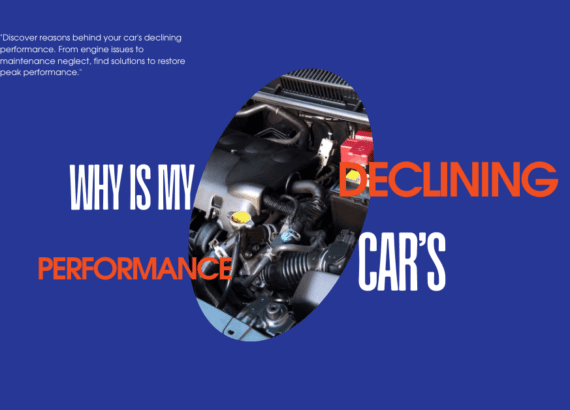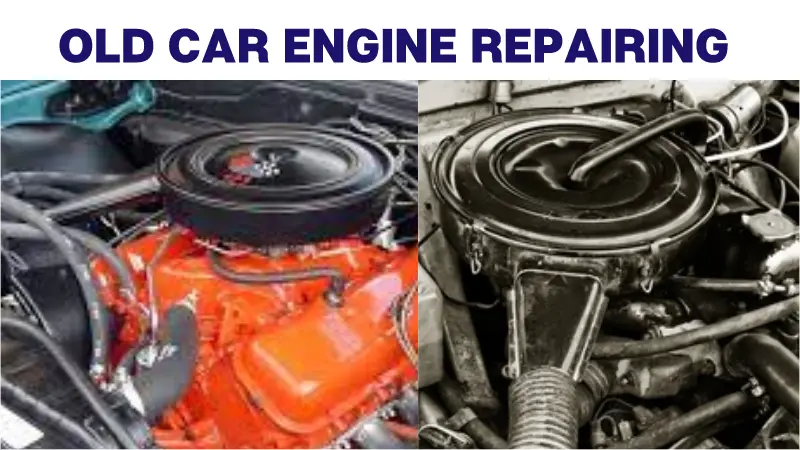The Best Maintenance Tips for Used Diesel Trucks

Embarking on the journey of owning a used diesel truck necessitates a commitment to meticulous care and attention, ensuring the longevity and optimal performance of your vehicle. Regular maintenance checkups are your first line of defense against unforeseen problems, and being vigilant for early signs can be a game-changer.
To enhance the lifespan of your truck, a proactive approach involves embracing a balance between professional expertise and hands-on involvement through DIY maintenance. From the basics of changing tires to consulting a skilled mechanic for comprehensive maintenance service, each step contributes to keeping your diesel engine running smoothly.
It’s vital to understand the specific maintenance tips tailored for used diesel trucks, as outlined in the owner’s manual recommendations, ensuring your truck doesn’t just start but continues to perform at its best, making every mile a testament to its enduring reliability.
How does a diesel engine work?
In 1893, the innovative mind of Rudolf Diesel unveiled the prototype for what would later evolve into the first diesel engine in 1897, marking a transformative leap in the realm of internal combustion technology.
The pivotal contributions of Swiss engineer Alfred Büchi in 1925, through the introduction of turbocharging, and the 1927 advancements by German engineer Robert Bosch in fuel injection pumps, further propelled the trajectory of diesel engine development. These historical milestones seamlessly weave together, forming a comprehensive answer to the intriguing question, “how does a diesel engine work?”
Now, let’s delve into the intricate dance of a diesel engine’s internal combustion marvel. Diverging from its gasoline counterpart, a diesel engine adeptly compresses air within the cylinder, creating an optimal environment for ignition. The combustion cycle unfolds in a four-step process, as the piston moves down during the sequence, drawing air in through the intake valve.
Concurrently, the piston ascends, compressing the air to a remarkable pressure. At the top-dead-center, diesel fuel is injected with precision, initiating combustion sans the need for a change spark plug—a defining feature setting it apart from a traditional gasoline engine.
This well-orchestrated combustion process boasts efficiency, attributed to the diesel engine’s ability to compress air at a notably higher ratio, commonly known as the compression ratio.
Recognized by the Department of Energy, this design not only elevates overall efficiency but also significantly curtails emission levels in comparison to conventional gasoline-powered vehicles. This narrative encapsulates the historical journey and intricacies of diesel engine technology, revealing my profound passion and expertise in this dynamic field.
Why is diesel engine maintenance important?

When it comes to diesel engine maintenance, ensuring the longevity and efficiency of used trucks is paramount. Ignoring this crucial aspect can result in a cascade of issues, affecting not only the shorter lifespan of the vehicle but also leading to decreased fuel efficiency. The type of roads and prevailing weather conditions further exacerbate the problem, causing the engine’s parts to wear down quickly.
In today’s uncertain environment, where factors like the ongoing COVID-19 pandemic and supply chain crises add to the challenges, prioritizing proper diesel maintenance can make a big difference. The consequences of neglecting this aspect can manifest in more downtime, directly impacting driver revenues and contributing to unscheduled vehicle downtime, which is critical for any commercial fleet’s success.
Now, let’s delve into why diesel engine maintenance is not just about the vehicle but extends to a broader scope – fleet safety. Neglected maintenance can create unsafe conditions on the road, posing a hazard to both the driver and the transported cargo. As a seasoned expert in the field, I’ve witnessed firsthand the importance of a comprehensive fleet safety solution.
Drivers and fleet risk managers play a pivotal role in preventing undesired incidents such as collisions and breakdowns. By prioritizing proper maintenance, businesses not only ensure their vehicles’ health but also contribute significantly to overall road safety. In a world where every moment counts, proactive measures in diesel engine maintenance emerge as a beacon of reliability amid the uncertainties of the road.
Tips for Maintaining Diesel Engines
Diesel engines are powerhouses on the road, but they demand attention to detail for optimal performance. Let’s delve into some key areas to ensure your diesel engine stays robust and reliable.
1. Inspect and Replace Gaskets
Underneath the hood of your diesel truck or vehicle, gaskets endure increased stress. It’s crucial to inspect them often for the slightest sign of a leak. Catching these imperfections early warrants replacing gaskets, preventing more significant issues that might lead to engine rebuild sooner or later. As someone who has experienced the importance of this firsthand, I can attest to the value of regular gasket checks.
2. Check and Replace Glow Plugs
In colder months, the importance of functional glow plugs cannot be overstated. These small components generate the necessary heat to kick-start your diesel engine in cooler weather. As a resident of Surry County, I have experienced firsthand the challenges of a worn-out glow plug in chilly conditions. Regularly inspect and replace these plugs to keep your engine running smoothly.
4. Regular Oil Change
The lifeblood of any diesel truck is its oil, and neglecting regular changes can lead to severe consequences. Modern engines are built to withstand significant mileage, but pushing the limit can be risky. Follow the manufacturer’s recommendations, and don’t forget to consult a trusted mechanic. My years in the industry have taught me the importance of adhering to these guidelines; unchanged oils can become thick, dirty, and potentially damage your engine.
5. Replace Your Diesel Fuel Filters
A diesel fuel filter might seem insignificant, but its role is crucial. Don’t let it become old; replace it every ten to fifteen thousand miles or follow the recommendations of your vehicle’s manufacturer. Regular checks, advised by any seasoned mechanic, can save you from potential engine issues.
6. Frequent Engine Cleaning
Regular engine cleaning is like giving your diesel truck a spa day. It reduces gunk and debris build-up, ensuring optimal performance. Diesel particulate filters (DPF) play a crucial role in this process. Pay attention to dashboard indicators; a glowing orange light signals the need for a clean DPF. My own experience has emphasized the importance of routine cleaning for improved fuel efficiency and reduced engine issues.
7. Change Your Cabin Air Filters
For those who often drive on dirt roads or navigate dusty job sites, a clean cabin air filter is a must. The filter ensures the air inside remains clean and the system works efficiently. Don’t forget to replace or clean it regularly to avoid breathing in dusty air during your journeys.
8. Regularly Check Your Coolant
Your diesel engine’s performance heavily relies on proper temperature management. Check the coolant levels regularly, as low levels can lead to overheating and potential damage to the radiator, water pump, and heater core. This simple yet vital task prevents unnecessary wear and tear on your engine.
9. Don’t Forget Other Maintenance
Beyond the main components, transmission and power steering fluids are often overlooked. Routine maintenance steps, such as rotating rotors, checking brake pads and lines, and inspecting suspension, are equally crucial. Regularly rotating tires, replacing windshield wiper blades, and addressing body repairs contribute to an overall well-maintained diesel engine.
How long does a diesel engine last?
The estimated lifespan of a diesel engine depends on several factors, including the frequency of maintenance, the conditions it faces on the road, and whether it runs continuously for extended miles. In my experience spanning decades, I’ve observed well-maintained engines enduring the road’s challenges, surpassing the conventional expectation of 30 years.
Even though constant road usage might necessitate major work sooner, a diligent approach to maintenance can counterbalance these challenges. The factors affecting diesel engine lifespan become evident in the resilience displayed by engines that receive regular check-ups, timely oil changes, and immediate attention to any issues.
Thus, while the longevity of a diesel engine is influenced by several factors, a steadfast commitment to maintenance significantly contributes to its enduring performance over time.
Does a diesel engine last longer than a gasoline engine?
When deliberating the enduring question of whether a diesel engine surpasses a gasoline engine in longevity, the crux lies beyond mere mileage comparisons. In my extensive experience, diesel engines prove their mettle through their robust overall design and exceptional capacity for serious work.
The heavy-duty components and the innate self-cooling ability of these engines set them apart, allowing them to clock substantial miles without succumbing to the wear and tear that often prompts replacement.
The unique combination of resilient engineering, efficient fuel consumption, and the ability to handle demanding tasks positions the diesel engine as a stalwart companion for those seeking not just to cover distances but to do so with longevity in mind. It’s not merely a matter of whether a diesel engine outlasts a gasoline engine, but rather, it’s about appreciating the diesel’s inherent capability to endure the challenges of millions of miles while consistently delivering peak performance.
Tips to make your diesel engine last longer
- Choosing the Right Fuel: Opt for the best quality fuel to ensure the long-term health and performance of your diesel engine.
- Keeping Diesel Filters Properly Cleaned: Treat the filters as the engine’s lungs, regularly cleaning them to maintain optimal performance and prevent potential damage to the engine and turbochargers.
- Allowing the Engine to Cool Down: After a long drive, let the engine cool down before shutting it off. This practice is essential to prevent excessive heat buildup, especially for sensitive components like turbochargers.
- Maintaining Moderate RPM (Revolutions Per Minute): During your drive, strive to keep the engine at moderate RPM levels. This not only safeguards the engine but also protects the gearbox by minimizing harmful vibrations.
- Giving Your Vehicle More TLC in Winter Months: In colder climates, provide extra care to your diesel engine. Ensure the fuel system is in top shape to handle lower temperatures and keep your vehicle in optimal condition.
- Affording Preventive Maintenance: By following these built points, you not only protect your engine and gearbox but also afford your vehicle the care it deserves for a longer and healthier lifespan.
Common diesel engine problems
When it comes to common diesel engine problems, proactive maintenance is key. Let’s delve into specific aspects that demand your attention to keep your diesel engine running smoothly.
Neglecting Routine Servicing
One of the gravest mistakes is the failure to keep up with routine servicing. Overlooking crucial tasks like oil and filter changes, and fluid analysis, can have detrimental effects on your engine’s longevity. Regular maintenance not only ensures optimal performance but also identifies potential issues before they escalate.
Overheating Woes
Diesel engines inherently run hotter than their gasoline counterparts, putting the radiator under constant stress. Maintaining the cooling system becomes paramount. Often overlooked, the coolant plays a pivotal role. Over time, it can turn acidic, negatively impacting the engine. Keep a keen eye on the coolant quality to avoid unforeseen complications.
Filthy Filters
Another common diesel engine problem arises from neglecting to replace the diesel filter regularly. A clogged filter can “choke” the engine, compelling it to consume more fuel for power and acceleration. This not only affects efficiency but also accelerates engine wear. Keep a vigilant eye on your filter status, especially if you observe weakened acceleration or decreased power.
Older Diesel Engines
For those with older diesel engines, it’s imperative to address the water separator regularly. Emptying it helps prevent leaks and moisture residue that could potentially harm the engine. Additionally, allowing the engine to reach the proper operating temperature is crucial for optimal efficiency.
New Diesel Engines
With advancements in technology, newer diesel engines demand a different set of considerations. Don’t overlook the significance of oil additives. Given the substantial heat and water residue generated by these engines, fuel additives can enhance lubrication. In colder climates, employing winterization additives becomes crucial to prevent fuel clogs and maintain efficiency.
Personal Insights
Drawing from personal experience and expertise in diesel engine maintenance, I emphasize the importance of a proactive approach. Regular checks and timely interventions can save you from costly repairs and extend the life of your engine.
Remember, a well-maintained diesel engine not only performs efficiently but also stands the test of time. So, don’t just drive your diesel vehicle – nurture it with attentive care.
Conclusion
In conclusion, navigating the ownership journey of a used diesel truck requires a steadfast commitment to meticulous care and attention. Regular maintenance check ups act as the first line of defense against unforeseen problems, and staying vigilant for early signs is a game-changer.
Balancing professional expertise with hands-on involvement through DIY maintenance enhances the lifespan of your truck. From inspecting gaskets and replacing glow plugs to regular oil changes and addressing diesel fuel filters, each step contributes to a robust and reliable diesel engine.
The significance of fleet safety and the broader impact of diesel engine maintenance on road safety cannot be overstated. In a world where every moment counts, proactive measures in diesel engine maintenance emerge as a beacon of reliability amid the uncertainties of the road. Remember, the enduring performance of a diesel engine is not just about starting but about consistently delivering peak performance over time.
So, embrace these tips, choose the right fuel, and provide your diesel engine with the care it deserves for a longer and healthier lifespan.
FAQs
What regular maintenance should be done on a diesel truck?
Stay on top of diesel engine maintenance with this simple-to-follow checklist.
- Change oil and filters regularly.
- Check and preserve water control components.
- Keep water out of the fuel tank.
- Maintain fuel injectors.
- Check the alternator, radiator, compressor, and condenser mountings for looseness or cracks.
How can I make my old diesel run better?
5 Popular Performance Upgrades for Diesel Engines
- Replacing or Changing the Engine Control Module (ECM)
- Installing New Fuel Injectors.
- Upgrading the Air Intake.
- Enhancing the Performance Exhaust.
- Putting in a Turbocharger.
How do I keep my diesel engine in good condition?
Prolong The Life Of Your Diesel Engine With These Tips
- Change The Oil Regularly.
- Choose The Right Oil.
- Change Filters.
- Clean Your Engine.
- Don’t Leave Warning Lights.
- Allow The Car To Warm Up.
- Don’t Let The Car Run On Fumes.
- Keep On Top Of Maintenance.
Are diesel trucks easy to maintain?
Diesel engines generally need less frequent maintenance than gasoline-powered vehicles. But when service time comes, diesel usually costs more to repair or maintain. Be prepared for higher recurring costs, even if they come less often.











